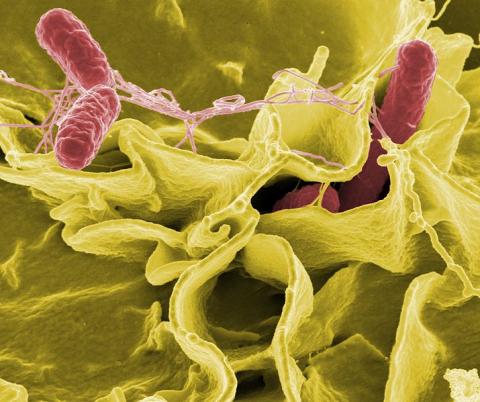
312-981-0409
33 N Dearborn St 10th Floor, Chicago, IL 60602
Serving Clients Across 7 Illinois Locations
What is the Difference Between Food Poisoning and Foodborne Illness?

The terms “food poisoning” and “foodborne illness” are frequently used interchangeably online and in face-to-face conversations. Generally, they are understood to refer to the same thing, but the truth is that they actually refer to two distinct concepts. Foodborne illness is any illness caused by eating contaminated food. It can occur after consuming food contaminated with harmful bacteria or other pathogens. Food poisoning is a specific subset of foodborne illness. When an individual suffers from food poisoning, he or she suffers from the effects of consuming specific toxins.
If you experience symptoms of foodborne illness, keep yourself hydrated and get a sufficient amount of rest. In most cases, food poisoning and other types of foodborne illness can only be treated with rest, hydration, and avoiding certain foods while recovering. If you experience worsened symptoms or complications like dehydration, seek medical attention.
Food Poisoning Facts and Symptoms
Food poisoning is a specific type of foodborne illness. Unlike other foodborne illnesses, food poisoning symptoms can occur as soon as an hour after consuming the affected food. Examples of food poisoning include Botulism and Ciguatera poisoning. These toxins cannot be frozen or cooked out of food.
Symptoms of food poisoning include:
- Nausea;
- Headache;
- Tingling in the limbs and extremities; and
- Dizziness.
Food poisoning can have severe complications, such as respiratory failure, depending on the type of food poisoning an individual suffers and his or her immune system strength.
Foodborne Illness Facts and Symptoms
Foodborne illness includes a variety of types illness caused by bacteria, such as Salmonella. Foodborne illness symptoms are very similar to flu symptoms and can include nausea, fatigue, fever, vomiting, and diarrhea. Because of these symptom overlaps, foodborne illness can be incorrectly diagnosed as influenza. The symptoms can also take longer to appear than food poisoning symptoms, sometimes taking 24 to 48 hours or even longer to begin to manifest.
Foodborne illness can be prevented by taking precautions in the kitchen. These include cooking meats thoroughly, storing leftovers at temperatures below 40 degrees Fahrenheit, and washing hands, utensils, and cutting boards thoroughly while preparing food and after meals are finished. Food can be contaminated by simply coming into contact with utensils and equipment that previously handled contaminated food, so it is important to keep all courses separate to avoid cross-contamination.
Work with an Experienced Rolling Meadows Food Poisoning Attorney
Regardless of whether you became ill from food poisoning or foodborne illness, if your illness was caused by another party's negligence regarding proper food handling, preparation, or storage or a failure to remove potentially-contaminated food from store shelves or food service operation, you could be entitled to recover compensation for your damages through a food poisoning claim. To learn more about pursuing compensation this way, contact our team of experienced personal injury attorneys at Newland & Newland, LLP to set up your initial consultation in our office. We serve clients in the Arlington Heights, Palatine, Rolling Meadows, Libertyville, Mundelein, Buffalo Grove, Schaumburg, Elk Grove, and Itasca areas.
-

Foreclosure and Bankruptcy
Visit Website -

Real Estate and Estate Planning
Visit Website -

Personal Injury
Visit Website

 Spanish
Spanish Cantonese
Cantonese















